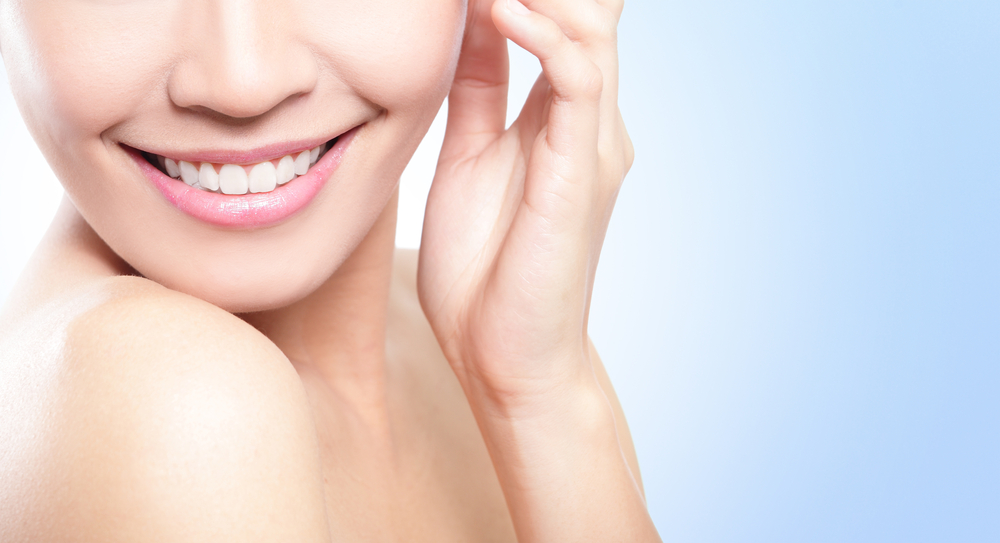
Social media platforms make it seem as if achieving a bright, white smile is easy to do while only using common household ingredients. While it is somewhat true that you can lighten your teeth by several shades from the comforts of home, it’s not safe or recommended to dig through your pantry to make it happen.
When it comes to dental health, there are significant risks that accompany most DIY teeth whitening treatments, and these risks increase for anyone who suffers from tooth sensitivity. Avoid potential tooth sensitivity by following these recommendations for the best ways to achieve a white smile if you experience any form of tooth sensitivity.
How DIY Whitening Can Make Teeth Extra Sensitive
You’ve heard your dentist say it many times, but your enamel cannot be replaced, and once it’s gone, it’s gone for good. The number one reason DIY whitening can be so dangerous is that how you choose to whiten impacts your enamel and can affect your gums. If not done correctly, you can injure your soft tissues or your enamel pretty easily.
DIY whitening doesn’t contain the same chemicals as professional whitening treatments, so they need to whiten teeth through other mechanisms. Most DIY whitening ingredients scrub the enamel to wear away superficial stains instead of gently lifting the stains. While they may be scrubbing away stains, they’re also scrubbing away your precious enamel, and using these DIY methods over an extended period will leave you with premature tooth erosion and sensitivity.
Home Whitening Kits vs. Professional Whitening
There are two main categories for teeth whitening: at-home kits vs. professional treatments. While at-home whitening can be more affordable, it also takes longer than an office visit because of the strength of the whitening treatments dentists can offer.
With professional whitening, you have excellent options that will allow you to whiten your teeth several noticeable shades in as little as 20 minutes:
Professional Laser Teeth Whitening
The laser energy heats the hydrogen peroxide whitening agent. This helps ensure that whitening is completed as quickly as possible, without pain or damaging the surrounding gums. We can complete an entire whitening procedure with laser teeth whitening by lightening teeth up to 4-6 shades in just 20 minutes of active treatment time. This is faster than other in-office whitening systems and allows patients to get back to daily life (with a brighter smile) as soon as possible.
In-office laser whitening treatments are performed in a single visit and can give you desired results in less time. We recommend professional whitening for anyone looking to whiten for a big event, if you have a busy schedule, or if you don’t want the hassle of daily whitening strips.
Custom Whitening Trays
Your dentist creates whitening trays from impressions of your teeth. These trays resemble a retainer or mouth guard and are then used by squirting professional-grade hydrogen peroxide gel into the trays and placing them in your mouth for the recommended time.
At-home whitening treatments
Whitening Toothpaste
Specific whitening ingredients work by lightening your teeth superficially by being more abrasive than regular toothpaste. Whitening toothpaste can remove staining on the surfaces of your teeth, but not the interior color of your dentin.
Whitening Strips
Each whitening strip is coated with a whitening gel that contains hydrogen peroxide. While each strip molds around your teeth, they can often produce uneven results because the strips are hard to get into the curves between your teeth.
Always Discuss Any DIY Treatments With Your Dentist
The promises of cheap and easy whitening will get a lot of attention on the internet because everyone loves seeing significant results with little effort. Some common DIY whitening options suggest making a paste with lemon juice and baking soda, which claims to bleach your teeth naturally. But the reality is, the baking soda is overly abrasive, and the lemon juice is dangerously acidic – two things that are terrible for the health of your teeth.
The best and safest way to achieve a whiter smile if you suffer from tooth sensitivity is to ask your dentist for a personalized recommendation. Many ADA-approved home whitening kits are perfectly safe and will give you a whiter smile in a safe fashion.
Ask Hinsdale Dentistry what methods we recommend for both professional and at-home teeth whitening at your next appointment.